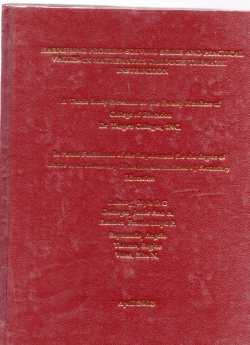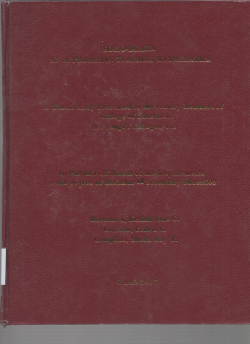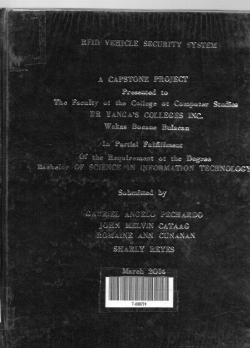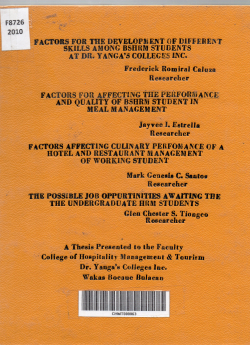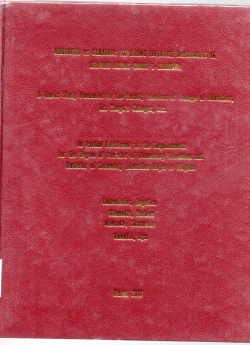Integrating Abstract Reasoning in Mathematics: A Strategy to improve Problem Solving Skills

Type
Thesis
Category
COED
[ Browse Items ]
Subject
Abstract Reasoning
Abstract
Innumeracy or lack of ability in mathematics is one of the dilemmas of every learner and those who are in teaching profession. sll Over f the learners years, are studies till to one dig of out the major much concerns of researchers. To address the need to improve problem solving skills of learners, effort has been made by the researchers to develop new strategy in teaching Mathematics, all of which promote to have active and well-informed learners in terms of problem solving skills. The researchers decided to conduct this study as it helps the teachers and soon- -to-be teachers to be aware that teaching method in Mathematics may vary. A strategy that the researchers came up was using Abstract Reasoning, Abstract Reasoning is a branch of Logic, which refers to the ability of person to analyze situation or information, to detect patterns and relationship, to solve a problem, to think that involved complex visual based ideas. This is a strategy where the students can reason out, conclude, and end up with answers or solution by the use of images and symbols. The aim of this study is therefore to investigate and examine whether an intervention of Abstract Reasoning will help students to gain deeper understanding and develop problem solving skills and see if this strategy can result to high performance levels among learners. Geared with the desire to know, the researchers utilized quantitative experimental method and constructed a questionnaire as tool that was used to measure the effectiveness of the intervention. This tool is validated by experts in terms of Mathematics and Assessment. The researchers conducted a Reliability test and according to Pearson Correlation Coefficient calculator the test is reliable with the value of R 0.7977. The test was given and collected at the end of the intervention. In order to derive presumptive and reasonable conclusion, these tests were compared to both group of learners that have been taught with the intervention. Furthermore, the investigation into the effectiveness of problem solving skills showed an interesting and encouraging positive outcome, supported by quantitative analysis. The results from the tests for both Experimental group and Control group have a small difference. Both groups acquired the same knowledge but, the Experimental group achieved higher score in the test than the participants in the Control group with a sig. value of 0.002, which means that the difference is statistically significant.
Number of Copies
1
| Library | Accession No | Call No | Copy No | Edition | Location | Availability |
|---|---|---|---|---|---|---|
| Main | 601 | T In812 2018 | 1 | Yes |
